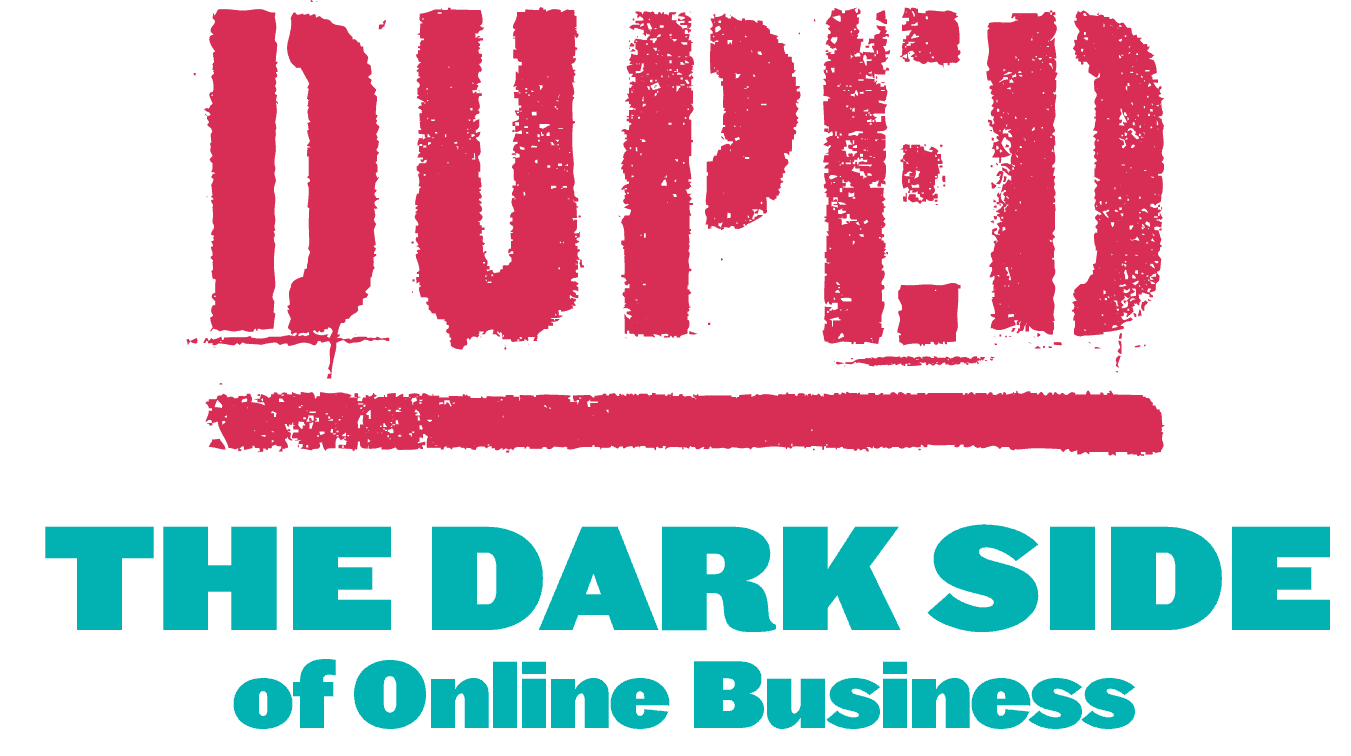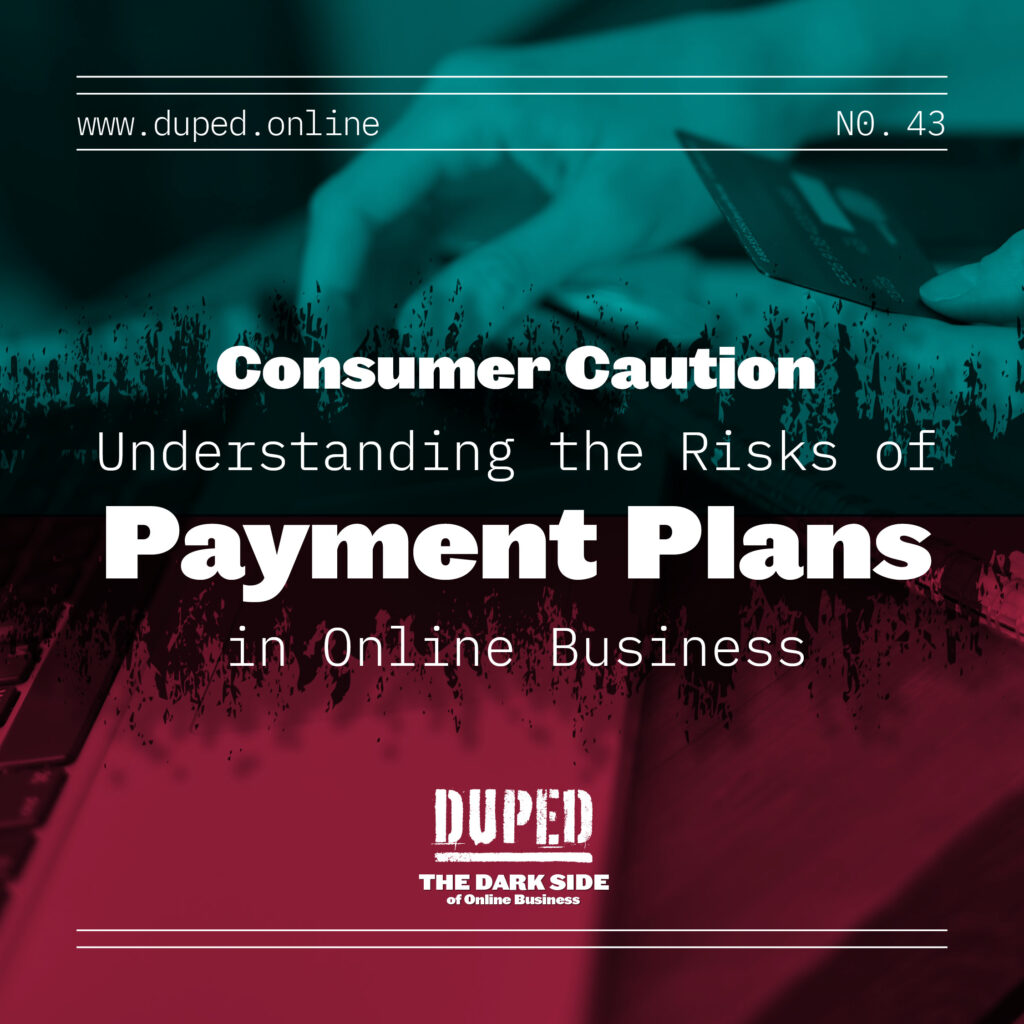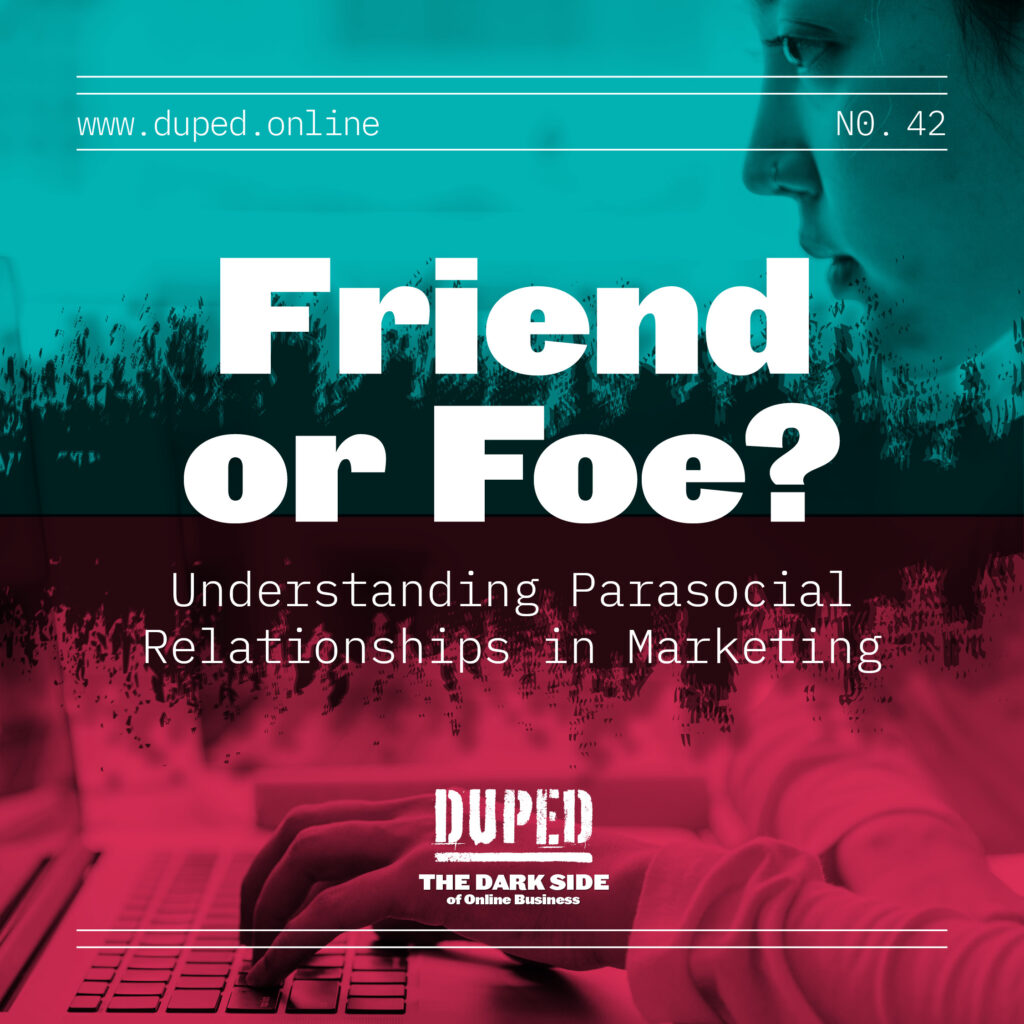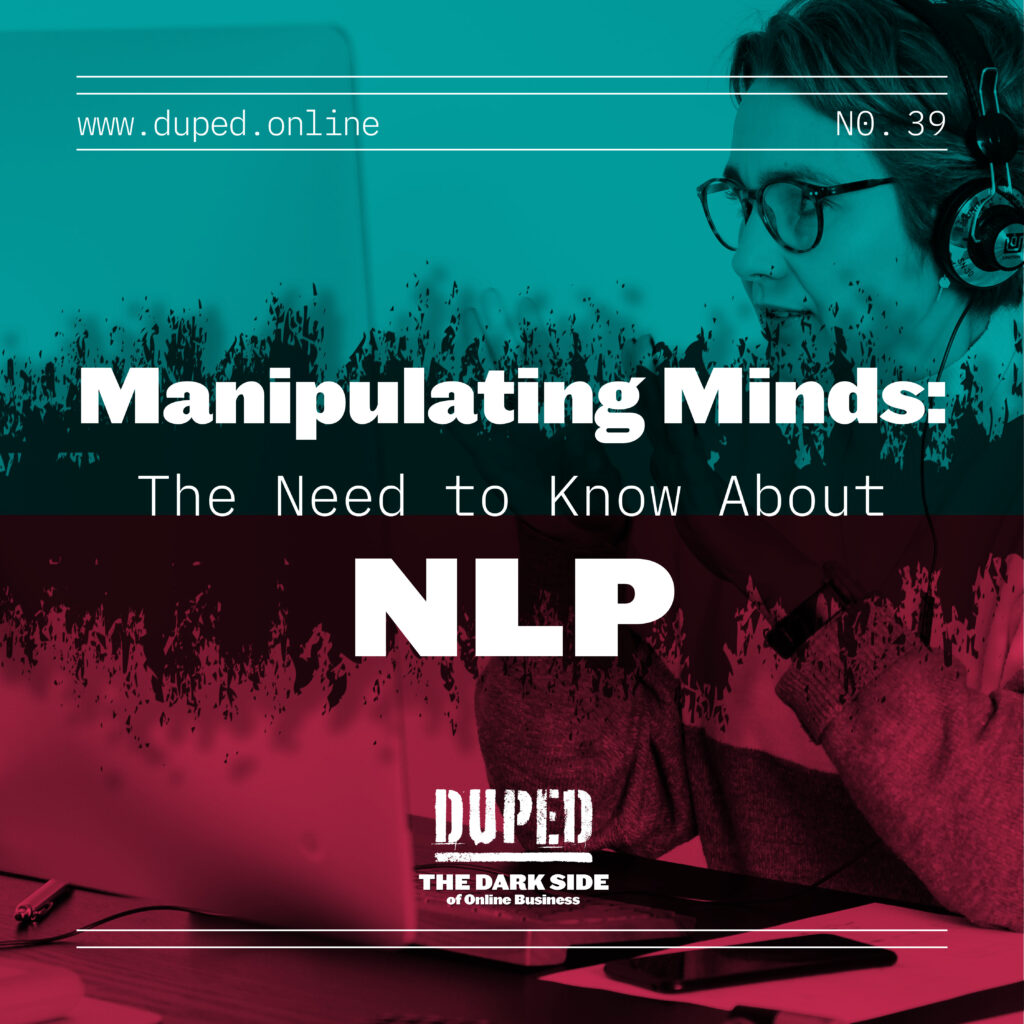
Coaching Scams: What to Watch for in 2023
From mystery offers to cash months, the online coaching world is full of sketchy and scammy things. In this episode, we’re discussing some of the coaching scams that are happening right now in the online business world and how to ensure you’re not getting sucked in.

While this entire season is about scams, there are a lot of more minor, more tactical scams that we wanted to flag for you as we’re seeing them more and more right now.
Before we dive into the three specific coaching scams we want to discuss today, we want to remind you that you may hear these and think, “that would never happen to me.”
The reality is that we’re all vulnerable, and the reason we’re talking about these is that they’re happening, and people ARE falling for them. People are being scammed while we record this episode, and the harm being done here is significant.
Remember, Duped is a consumer advocacy podcast, so even if you’re feeling confident you wouldn’t get scammed like this, you can always learn something about the current state of the industry that will apply in another scammy situation.
Mystery/Surprise Offers
As people who hate surprises, the first scam we’re talking about is highly unappealing to us.
We’re talking about mystery or surprise offers, and these are everywhere right now. They’re usually being offered by coaches with seriously questionable qualifications and ethics, from what we’re seeing.
Just like the name implies, you’re buying something from a celeb entrepreneur with very few details. They’re asking you to trust them to operate purely on faith that it will be awesome.
Price points on the offers we’ve seen vary wildly, with anything from $25 to $25k.
But what makes this so effective? There’s debate in the psychology community as to whether surprise is an emotion or behavior. Chapter One of the book Decision Making: Neural and Behavioral Approaches written by Meller et al. 2013 provides a look at the research around surprises. They conclude that “Surprise effects are robust across changing reference points, and surprise effects help explain why the pleasure of a gain can be greater in magnitude than the pain of an equivalent loss.”
What gets us with this is that the odds are stacked completely in the seller’s favor, and the power dynamics are seriously culty. It’s a great way to find out who’s loyal to you and going to comply further. I’m sure this would check a lot of boxes on Dr. Steven Hassan’s BITE Model.
Missing Website
A few months ago, Maggie did a deep dive into a lot of the “millionaire mentors” that are out there right now, and there’s a large group of them that run their businesses the same way. We’re not 100% sure who their upline coach is, but they all have one thing in common.
They do most of their selling on social media, which isn’t scammy in and of itself. Where this gets interesting is that they don’t have a web presence, and if you Google them, the details are sparse.
Not having a website is not scammy. But when you’re claiming to make millions and your offers don’t have details or are in a Google Doc, that’s a deliberate business decision.
The same way with the mystery offer, they’re scamming you with no details, but the intent here is the same. If you buy based on very little info, it’s much easier for them not to deliver or turn around the blame you.
In a lot of ways, our brains prefer if we have less detail when making decisions. Most of us struggle with decision fatigue on a day-to-day basis. With decision fatigue, we’re mentally exhausted. According to Decision Lab, decision fatigue is prevalent in our lives and can lead to bad decision-making and burnout for many people.”
Now, think about the backdrop against which we’re making this decision. We’re tired, we’re mindlessly scrolling Instagram, and someone pops up with the answer to our problems. Maybe we’re struggling in our business or want to quit our 9 to 5.
The fact most of these sales happen via Instagram is no accident. They’re literally getting us when we’re depleted and maybe even desperate. They remove the barrier of details as they know it’s easier for us to say yes while our decision-making is compromised.
Plus, this scam taps into your hopes and dreams through social media content that focuses on how much money they make, and then the real grift starts. They tell you that you need to invest to level up, and then they throw everything they’ve got at getting you into their container.
As context, one of these coaches that I looked at was selling a 12-month mastermind for $75k for a year, paid in full (with no indication of pricing if you paid in installments) using a Google Form. No details were provided, and beyond an IG bio, I can’t even find info on her and why she’s qualified to command this price.
Cash Days or Months
The final scam we want to chat about today is the relentless sharing of “cash” days or months on their social media feeds. This is why the first two scams we talked about are so effective for them.
As we’ve talked about before, income claim marketing is insidious in this industry, and how these coaches do this is one of the most over-the-top examples out there.
Most of you have seen these types of claims, and after we reviewed too many of these to count, there’s a formula being used. It’s usually something like celebrating a $487,062 cash month and then the story about how they did it. That story always is about providing a testimony to the fact they’re investing in themselves and that they’re living their dream life.
And here’s where the scam comes in. So many of these people are NOT being truthful. These are full-on lies about how much money they make in their business.
As we discussed in the myth of the million-dollar business episode, it’s not plausible that all these fly-by-night coaches are making this much money. They’re playing us by normalizing paying astronomical amounts for “business” coaching.
There are two other things we may be able to attribute this to. First is survivorship bias, where we think success is a given as we don’t see the failures. The other is the illusion of control bias where we think we have way more control over the results than we really do and it leads to engaging in taking unnecessary risks.
Why Are These Scams Getting More Outlandish?
As we wrap up, you’re probably thinking, why are these scams getting even more outlandish? There are a lot of reasons for that but a big factor is that the more people that are in this space, the more claims are being made, and the sheer number of offers are being made.
As a result, they’re competing for attention and they need to up the ante to make the sale.
One of the big reasons we do this show (and have committed to doing the Patreon) is that as long as there are people willing to pay these people, there will be new scams popping up. We want to be part of a move in this industry to clean up these business practices and, ideally, cut off the supply of potential marks for them.
Now, let’s talk about protecting yourself from these coaching-specific scams:
Question Everything. If they don’t have a sales page, ask why. If there are no program details, ask why. Slow down and think critically about what they may be trying to hide, and make a point of skipping offers that lack the details.
Institute a Waiting Period. Many of these offers are time-limited, and they’re deliberately designed to activate your FOMO. With a cooling off or waiting period, you can help ensure you’re not being swept up in the excitement.
Vet Their Qualifications. For the most part, when looking at these coaching scams, these coaches weren’t really even coaches. They called themselves coaches or mentors but had zero training, scope of practice, or ethics. If you’re looking for coaching, you need to keep in mind that coaches do not provide advice and that these people will say anything to get your money. If you truly want a coach hire one with expertise that’s aligned with what you need and has more than an IG bio to go on.
Is It Too Good to Be True? These coaches are amazing at hyping up everything from how much money they’re making to how magical can offer can be. They’re relying on your faith, as well as your desire to make more money or build your business and weaponize that against you. If it sounds too good to be true, it very likely is. The math here just doesn’t add up in any way.
Talk to Someone You Trust. With each of these scams, there are a lot of factors at play that influence your decision-making. Asking for an outside perspective can help you identify where you’re falling into these traps and if your thinking relies on biases or magical thinking.
Links for This Episode
Join the

Patreon

for only $7/month and get a
monthly bonus episode,
behind-the-scenes content
and more.










